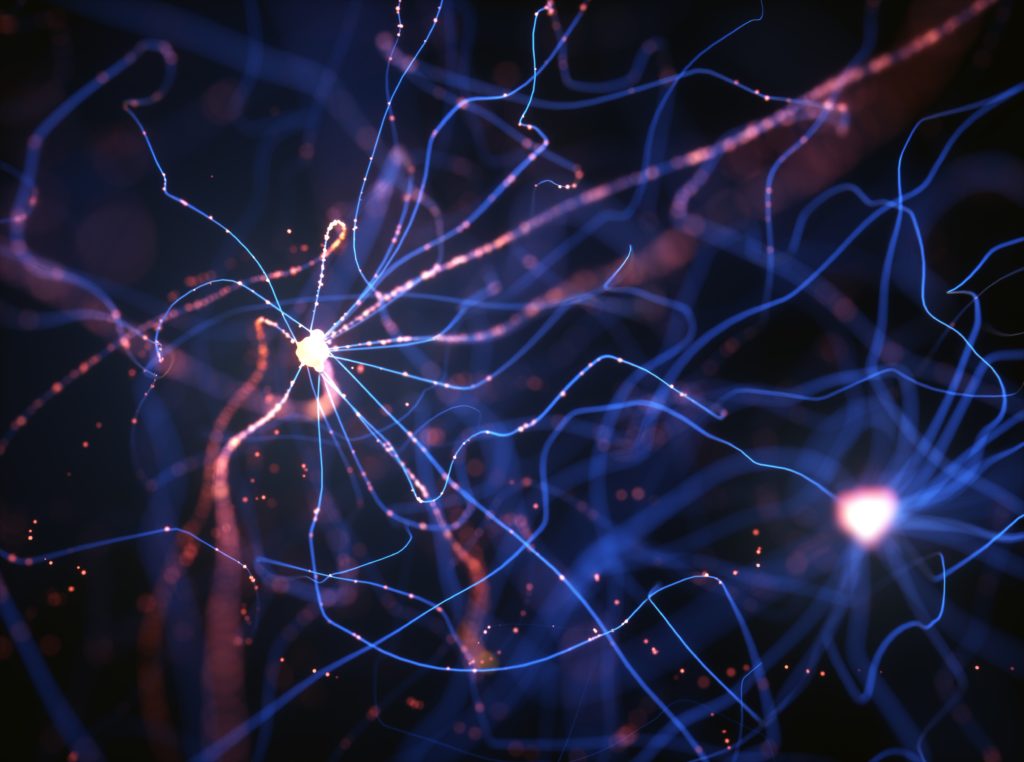Quick Hits
Daily brief research updates from the cognitive sciences

This is pretty fascinating research. Motivation after all is an important human concept, most of us would probably want more of it, and it is important for many positive life outcomes. And though we may consider motivation a purely psychological concept, it is driven by different chemicals and transmitters in the brain in different regions.
This research out of the EPFL in Lausanne Switzerland, started off by looking at how your brain breaks down molecules for processing, into metabolites, and how these influence motivation. As I have just said motivation is after all a biochemical reaction in certain parts of the brain which then energises you psychologically and physically to do something.
Another part of this equation is the role of oxidative stress – as the brain, or body, works different chemicals are released that can then impede and inhibit cellular functioning. So, these researchers looked at glutathione (GSH) in the brain – this is the brain’s most important antioxidant.
The theory would be that higher levels of this in an individual’s brain may protect against build-up of metabolites and stop motivation from decreasing. To test this, they then turned to rats and human beings. Using a very scientific sounding procedure of proton magnetic resonance spectroscopy they managed to measure levels of GSH in a region of the brain called the nucleus accumbens. This region sitting deep in the brain is strongly associated with motivation and getting to action.
What they found is that yes, higher levels of GSH correlated to better performance in rats and humans, see we are similar, on effort-related motivational tasks.
So far so good, but as we know correlation is not the same as causation – it could be something else that is causing the motivation and the higher GSH levels are just a happy coincidence. The rats were then given micro injections of a GSH blocker – not for the humans – and yes, motivation dropped. As in they performed worse in effort-based, reward-incentivized tasks.
But more, can an increase also improve motivation? For this the researchers gave the rats N-acetylcysteine (NAC), a precursor (mearning that the brain can process more GSH) to GSH, and yes, the rats performed better on the same type of tasks. This is more interesting for us because NAC is present in high-protein foods such as meat, fish, and seafood and in lower quantities in eggs, whole-grain foods and some vegetables (broccoli, onions, and legumes, for example). It is also a nutritional supplement that anyone can buy over the counter.
The researchers did note that the effect did seem to be mediated by specific type of neuron in the nucleus accumbens.
But the major take away for now is that GSH is important for motivation by reducing the impacts of oxidative stress – so keeps you motivated for longer. And you can increase this by eating the right foods or potentially by taking NAC as a supplement.
Don’t expect too much but nevertheless good to know!.

Andy Habermacher
Andy is author of leading brains Review, Neuroleadership, and multiple other books. He has been intensively involved in writing and research into neuroleadership and is considered one of Europe’s leading experts. He is also a well-known public speaker, speaking on the brain and human behaviour.
Andy is also a masters athlete (middle distance running) and competes regularly at international competitions (and holds a few national records in his age category).
References
Eva Ramos-Fernández, Ioannis Zalachoras, Fiona Hollis, Laura Trovo, João Rodrigues, Alina Strasser, Olivia Zanoletti, Pascal Steiner, Nicolas Preitner, Lijing Xin, Simone Astori, Carmen Sandi.
Glutathione in the nucleus accumbens regulates motivation to exert reward-incentivized effort.
eLife, 2022; 11
DOI: 10.7554/eLife.77791
More Quick Hits
How Meditation Helps Pain In Your Brain
Quick HitsDaily brief research updates from the cognitive sciences es, meditation can help with pain by changing your experience of it. I reported on that here. Another piece of research just published shows that how experienced meditators and...
When Stress Is Good For Brain Functioning
Quick HitsDaily brief research updates from the cognitive sciences tress gets a bad rap – understandably it is a negative experience and has been shown over long periods of time, and with high intensity, to cause multiple negative outcomes, from...
Put Your Smartphone Down and Let your Mind Wander – You’ll Be Happier
Quick HitsDaily brief research updates from the cognitive sciences here’s a lot been said about smartphone usage and how it can be used and abused. Most of this concern revolves around usage in children or teenagers, however, with some research...
The Amazing Impact Of Reaching Out To Your Old Friends
Quick HitsDaily brief research updates from the cognitive sciences few weeks ago a friend I hadn’t seen for about 10 years sent me a message and asked if I had time to meet up. I was elated. "Sure," I immediately messaged back, "when and where?!"...
Really? Belief In Conspiracies Not Increasing
Quick HitsDaily brief research updates from the cognitive sciences e may feel like we’re in an age of conspiracy theories, that social media is turbocharging the wild and wacky theories, and the so-called information bubbles are sending people down...
You Wake Up 100 Times Each Night – And That Helps Memory
Quick HitsDaily brief research updates from the cognitive sciences have written numerous posts and articles on sleep and the brain (review here), and the evidence is crystal clear. Good and consistent sleep is essential to all aspects of physical...






